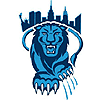
You have to feel sorry for the Columbia defense this week. After allowing 325 yards rushing en route to a home-opening loss against Central Connecticut State, the Light Blue defensive unit now feels the pressure of a second underwhelming week despite high expectations.
But honestly, who could blame them? Just look at the first quarter they had to endure on Saturday.
It actually started out well, as the unit first jogged onto the field with a 7-0 lead and plenty of positive momentum still abuzz from the Liberty Cup victory. The energy was evident as the Lions defense held the Blue Devils on their opening drive after just 4 plays.
On the ensuing offensive possession, Ray Rangel broke a 49 yard run and the Lions looked set to put the game away early. However, the drive stalled and, in a disappointing turn of events, Columbia’s field goal attempt was blocked.
By the time the Lions defense jogged onto the field for the second time, CCSU had been rejuvenated by the stop and blocked kick.
But the defensive unit held strong and forced CCSU into a three-and-out.
On the proceeding punt, a Lion was charged with holding before the punter had kicked the ball, and thus the Blue Devils were awarded with ten yards and kept possession for a first down. It was another momentum shift for the defense to fight, and come through they did, getting another stop to force yet another punt.
Upon receiving the punt, the Light Blue offense failed to move the ball, and was forced to kick it again, this time from a dangerous position inside the Columbia ten. The kick was easily blocked by the Blue Devils, who recovered at the two yard line.
Junior Marc Holloway then stepped up, getting in on three of the four consecutive goal line stops that kept the score at 7-0 heading into the second quarter. To cap it off, the Lions defense opened the second frame by dramatically stopping star Blue Devil James Mallory again on fourth down to force a turnover.
Despite the blame this week, the Columbia defense was terrific to start the game. Unfortunately, the energy expended to minimize the early special teams damage would prove to have severe consequences in the second half.
Switching gears away from Saturday, there are certain things sports fans expect when rooting for their high-level athletic teams. One expects his pitchers to throw strikes, the same way he expects his star forward to convert a penalty kick during a soccer game, or his starting point guard to hit a majority of his free throws. Using this same progression, a football fan expects not to have to hold his breath every time his team attempts a point after or a punt.
This is because the special teams unit carries with it the minimum expectation of executing critical plays with consistency. Because this minimum expectation exists for all competing football teams, a squad finds itself at a true advantage when special teams play exceeds expectation. Think back to the excitement that surrounded Dante Hall’s kick returning abilities for the Chiefs in the early part of the decade and his appropriate nickname: “the x-factor.”
In much of the same way that a special teams threat can dramatically enhance one team’s chances, a special teams deficiency can have the opposite effect. This was evidenced during the Lion’s home-opener on Saturday.
In fact, poor special teams play has been a common theme for the Columbia football team for the past two seasons. Last week, a missed extra point had the Lions holding on to a vulnerable six point lead at Fordham when freshman punter Matt Williamson saved the game by scooping up a bad snap inside his own thirty yard line and still delivering a solid punt.
On Saturday, the Lions had a punt blocked, a thirty yard field goal blocked, an extra point blocked (and returned for two points), and a first down given up for a penalty while receiving a punt.
Aside from the possible six point swing these mistakes cost Columbia, the special teams meltdown hindered the Light Blue in a less hypothetical way. Mistakes in kicking and punting killed the offensive momentum in the first half while overexerting a defense intent on keeping the Blue Devils off the scoreboard.
In the second half, the offense continued to be out of rhythm despite the hot start, and the special teams unit continued to struggle. When all was said and done, the Light Blue were out-possessed 21:23 to 8:37 in the second half, as efficient CCSU coaching continued to call run plays against a battered defense, who never got a rest of more than two minutes and fifty six seconds of game time in the final two quarters.
I never said I was going to be an optimist every week, and sometimes the factors of a loss need to be thoroughly scrutinized to yield improvement. Last week, special teams unacceptably cost Columbia a victory, an experience that will hopefully prove beneficial to an up-and-coming team seeking to learn how to win.
On Saturday, they learned their first lesson: you cannot win if you beat yourself.


